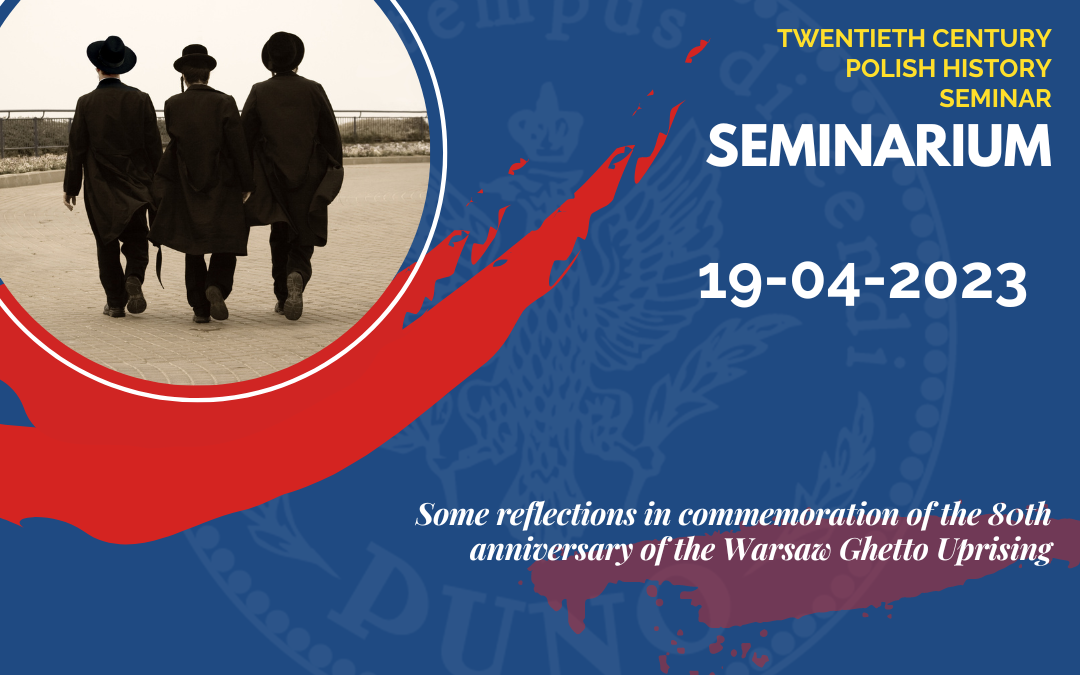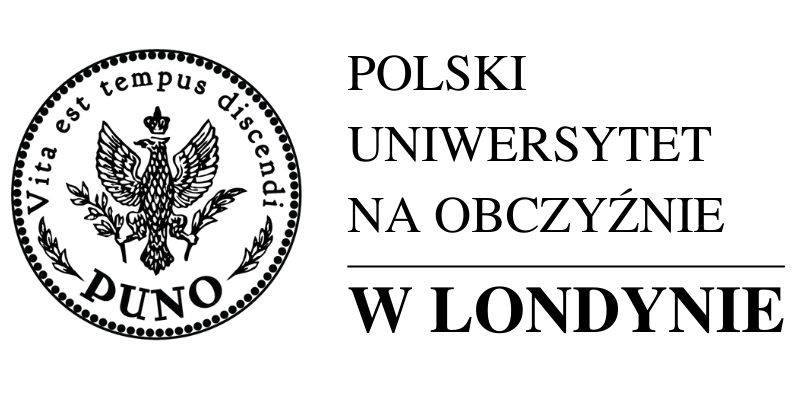
- This event has passed.
Twentieth Century Polish History Seminar

dr Wojtek Rappak (PUNO)
Some reflections in commemoration of the 80th anniversary of the Warsaw Ghetto Uprising
Time: Apr 19, 2023 06:00 PM London
https://us06web.zoom.us/j/88000665951?pwd=eXJVeUNFWVJlRUNkZ2hzd0pINWdrdz09
Meeting ID: 880 0066 5951
Passcode: 000007
Exactly 80 years ago, on April 19th 1943, about a thousand young Jewish fighters attacked various German positions in the Warsaw ghetto. The attack took the Germans by surprise, some reports even say that they were shocked to be attacked by Jews. After a day of setbacks, the Germans appointed a new commander, General Jurgen Stroop, who initiated a brutal counterattack aimed at the complete destruction of the Warsaw ghetto, its Jewish fighters and its remaining inhabitants. Commanding a force of over 2000 fully-armed Gestapo, Waffen-SS and other units, it took Stroop nearly two months to defeat the Jews. And on the 16th of May, nearly two months after the start of the uprising, in a report to his superiors, Stroop declared that ‘the Jewish district of Warsaw no longer exists’. The ghetto was in ruins, almost all of the fighters were dead, and about 60,000 inhabitants who were still hiding in the ghetto bunkers were sent to be murdered in Treblinka or shot en route. And yet the Warsaw Ghetto Uprising was a triumph of Jewish armed resistance. To all the exhausted inhabitants of the Ghetto, death must have seemed inevitable, survival unlikely. To the Ghetto fighters, a Jewish resistance force ensured that Stroop’s forces paid a price, the fighters died with honour. There is another aspect of their heroism: there was some help from the Polish or the ‘aryan’ side of the ghetto, but in broad terms, the Ghetto fighters fought alone. In London on May 13th, Szmul Zygielbojm, the Bundist member of the Polish National Council, committed suicide to express his ‘profound protest against the inaction in which the world watches and permits the destruction of the Jewish people’. This talk will include a brief account of the wartime context of the Ghetto Uprising, the reasons for its importance and the need for its commemoration.
Wojtek Rappak was born in Gdańsk and studied philosophy and history in Canada, Warsaw, Paris and London. He gained his first doctorate from King’s College, University of London, for research into the foundations of logic and the early philosophy of Ludwig Wittgenstein. His supervisor was the late Peter Winch. In 2021 he was awarded his second doctorate, from University College London (UCL), after submitting a history dissertation which examined the archival evidence on how Jan Karski tried to alert Western leaders about the Holocaust. His supervisor was Antony Polonsky, a world authority on Jewish history, at UCL’s Hebrew and Jewish Studies department. Wojtek is a Reader in history at the Institute of European Culture at the London-based Polish University Abroad (PUNO). He is also an expert on the application of logical principles in the design of automated systems that use large, industrial-scale databases. He is a co-founder and a director of Rational Commerce Ltd., which offers this expertise to customers in the financial, manufacturing and government sectors. Wojtek has published articles in journals in Britain, Poland and Israel. All of them deal with various aspects of World War Two, Jan Karski and the Holocaust. He presented papers and gave talks at conferences in London, Jerusalem, Warsaw and Gdańsk. He is currently preparing a book which will present a new view of Jan Karski and his time.
